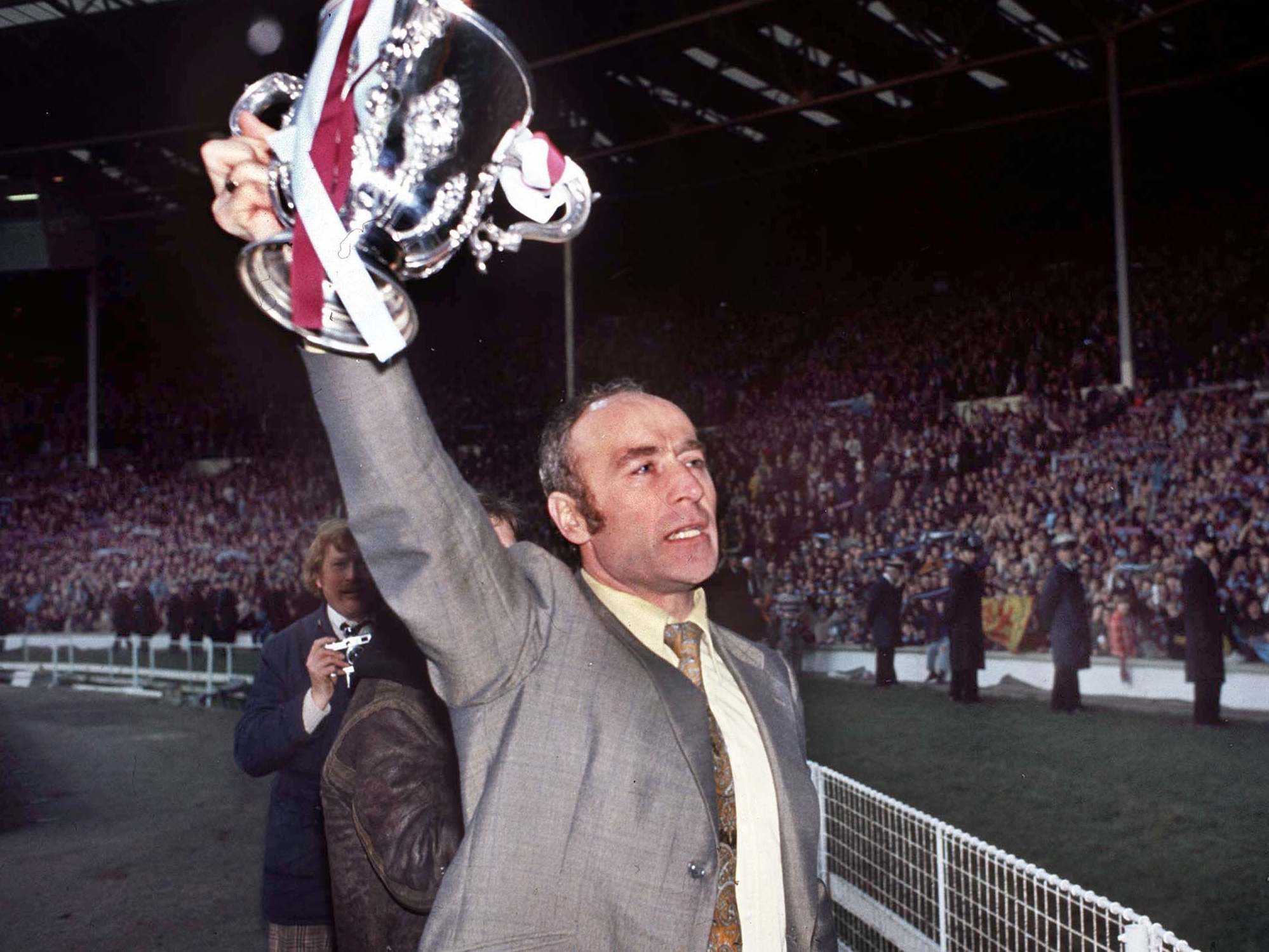Ron Saunders: Football manager who led Aston Villa to the top
He took the club to First Division title success and into the European Cup

As player and manager, Ron Saunders, who has died aged 87, enjoyed a successful, if occasionally controversial, 39-year career in football.
He started out as a combative, free-scoring, old-fashioned centre forward – good in the air but no less creative with the ball at his feet – and later turned to management, his greatest achievement being the First Division title victory with Aston Villa in 1981.
He also twice achieved promotion to the top flight and led three different teams to League Cup finals in successive years. He remains the only manager to have taken charge of all three major West Midlands clubs – Aston Villa, Birmingham City and West Bromwich Albion.
Born in Birkenhead, the second of eight children of a Liverpool docker, he was undistinguished academically at Park High School but he did find sporting success.
As a footballer, rejected by Tranmere Rovers, he was capped by England at youth international level, once putting four past Scotland. Signing for Everton as an amateur in 1949, he turned professional two years later. However, such was the strength of the Everton squad at that time that he was confined to the reserves. He made the first of only three senior appearances against Cardiff City in February 1955.
In 1957 he moved to Kent and into non-league football with Tonbridge, where his scoring exploits brought him to the attention of Third Division South side Gillingham. After registering 20 goals for the Gills during the 1957-58 campaign, Portsmouth, then in the First Division, paid £10,000 for his services. Winning legions of fans among the Fratton Park faithful as the top scorer in each of his six seasons at the club, his final tally stood at 145.
Surprisingly dropped for a pre-season friendly with Arsenal, Saunders immediately sought a transfer. Moving first to Watford, following two seasons, 1965-67, at Charlton, he then retired. Making 392 appearances for his six clubs, he scored 207 goals.
Immediately moving into management, Saunders began learning his trade at non-league Yeovil Town. Two years later he settled briefly at Second Division Oxford United, staying for only 12 games, before being appointed manager of another second-tier side, Norwich City.
Adroitly building a young and talented squad, he took them into the First Division for the first time in the club’s history in 1971. Two years later the Canaries made it to the League Cup finals, losing 1-0 to Tottenham Hotspur. However, after falling out with the chairman, Arthur South, he briefly took charge at Manchester City. After only five months, he then fell foul of City chairman Peter Swales.
Moving seamlessly on to Aston Villa in 1974, in only his first season he not only masterminded promotion to the First Division but also guided them to success in the 1975 League Cup final, beating his former club, Norwich, 1-0. Prioritising fitness and organisation, Saunders was perhaps more forward-thinking than his dour reputation would suggest.
Villa then won a further League Cup final in 1977, beating Everton 3-2 after a second replay. Remarkably, in winning the First Division title in 1981, Saunders used only 14 players, seven of them playing in all 42 matches. In February, 1982, just as Villa reached the quarter-finals of the European Cup, a contract dispute led to his resignation. A month later, his former team were European champions.
Two weeks later Saunders had found himself back at Villa Park – but now as manager of Birmingham City. Relegated in only his second season, the club did manage to bounce back in 1984-85. However, he was unable to replicate the earlier success he had enjoyed with Aston Villa and, with little money to spend, he left the club in 1986.
Then, to everyone’s surprise, he moved across the city to local rivals West Bromwich Albion. But he was unable to prevent the club being relegated and was sacked after 18 months. Aged 55, Saunders walked away and into retirement.
Saunders later struggled with dementia, and his last few years were spent in a care home.
He is survived by his wife and four children.
Ronald Saunders, footballer and manager, born 6 November 1932, died 7 December 2019
Join our commenting forum
Join thought-provoking conversations, follow other Independent readers and see their replies
Comments
Bookmark popover
Removed from bookmarks